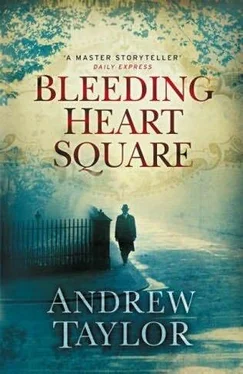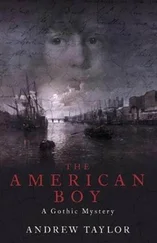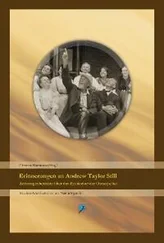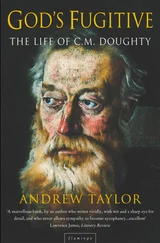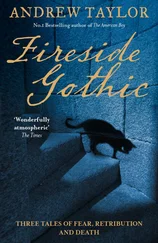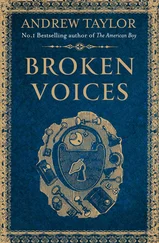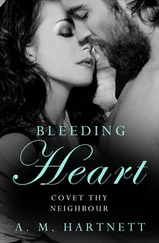Andrew Taylor - Bleeding Heart Square
Здесь есть возможность читать онлайн «Andrew Taylor - Bleeding Heart Square» весь текст электронной книги совершенно бесплатно (целиком полную версию без сокращений). В некоторых случаях можно слушать аудио, скачать через торрент в формате fb2 и присутствует краткое содержание. Жанр: Триллер, на английском языке. Описание произведения, (предисловие) а так же отзывы посетителей доступны на портале библиотеки ЛибКат.
- Название:Bleeding Heart Square
- Автор:
- Жанр:
- Год:неизвестен
- ISBN:нет данных
- Рейтинг книги:5 / 5. Голосов: 1
-
Избранное:Добавить в избранное
- Отзывы:
-
Ваша оценка:
- 100
- 1
- 2
- 3
- 4
- 5
Bleeding Heart Square: краткое содержание, описание и аннотация
Предлагаем к чтению аннотацию, описание, краткое содержание или предисловие (зависит от того, что написал сам автор книги «Bleeding Heart Square»). Если вы не нашли необходимую информацию о книге — напишите в комментариях, мы постараемся отыскать её.
Bleeding Heart Square — читать онлайн бесплатно полную книгу (весь текст) целиком
Ниже представлен текст книги, разбитый по страницам. Система сохранения места последней прочитанной страницы, позволяет с удобством читать онлайн бесплатно книгу «Bleeding Heart Square», без необходимости каждый раз заново искать на чём Вы остановились. Поставьте закладку, и сможете в любой момент перейти на страницу, на которой закончили чтение.
Интервал:
Закладка:
‘Yes — you came to ask about the flat upstairs.’
He nodded. ‘What’s it like? Have you seen it?’
‘No.’ She crumbled her roll and allowed her eyes to drift back to The Times .
‘Curious name, isn’t it?’
Bleeding Heart Square?’
— Yes — do you know where it comes from?’
She shook her head.
‘That’s what I like about London,’ he went on, showing no sign of discouragement. ‘These old corners with layers of history attached to them. They seem to exist in more dimensions than most places do.’
‘What do you mean?’
‘I’m not quite sure I know. I suppose I mean it exists in time as well as space. So there’s always more to it than there seems. Only you don’t quite know what.’
She burst out laughing, not so much at what he said, though that was ridiculous enough, but at his face, whose features had realigned themselves into an expression of mock horror. Rather to her relief, the waitress arrived with her cutlets, which gave her the opportunity to break off the conversation. She ate a few mouthfuls and returned to the crossword.
‘Not shown by game birds (two words) (5, 7.’ The answer came to her in a pleasing flash. ‘White feather.’ She pencilled the words into the grid and wondered how the man made his living. His own lunch arrived and for a few minutes they ate in silence. He could be worse, Lydia conceded — at least his table manners were reasonable. His hands were clean but his arms were too long for his sleeves, and the cuffs of his shirt were frayed and slightly grubby.
He coughed. ‘I don’t know if I should mention this, but six down is “hostile”.’
Startled, she looked up.
‘Sorry,’ he said, and his face became a clown-like mask of unhappiness. ‘It’s a bad habit. I can’t help reading things upside down. Actually, it’s one of the more useful things I learned at school.’
‘I was looking at the clues across first, actually.’ Nevertheless she filled in the solution to six down.
‘It’s very trusting of you,’ he said. ‘May I see it the right way up? Just to make sure.’
There was no help for it. Lydia pushed the newspaper towards him. He would see her embryonic shopping list in the margin of the newspaper. The forced intimacy suddenly jarred on her. It was as though she were a silly little shopgirl, and he were trying to pick her up. Why the hell had she found the man interesting? Perfectly pleasant in his way, no doubt, but — well, not to mince one’s words — rather common.
‘Yes,’ he said. ‘“An exclamation at a crossing place is not friendly.” “Ho” and “stile”, you see. It can’t be anything else.’
Her pudding arrived. She ate it quickly and decided against coffee. When she pushed back her chair to leave, he put down his fork and rose politely to his feet. He handed her the newspaper.
‘I hope I haven’t spoiled your crossword,’ he said.
Lydia shook her head but avoided looking at him. She picked up her basket and said goodbye. As she left the cafe, she was sure that many eyes were watching her. The clerks and lady typists knew she didn’t belong here, and so did the man who had shared her table.
The next forty-five minutes were devoted to shopping, which was on the whole an unsatisfactory experience, by turns mystifying and mortifying. How much bread should she buy? How did you tell whether a loaf was stale merely by looking at it? Was the milk fresh? It seemed to her that the shopkeepers treated her with a mixture of surliness and disdain.
With the basket on her arm growing steadily heavier, she walked through the rain to Bleeding Heart Square. The wind was stronger, and the umbrella swayed and bucked in her hand. A taxi had parked in the lee of the chapel, opposite the door of number seven. She put the shopping on the doorstep and opened her handbag, looking for the latchkey. There were footsteps behind her.
‘Lydia!’
Panic surged through her. She wanted to scream. Marcus came up beside her and clumsily embraced her. She edged away from his arm.
‘Lydia, darling. I didn’t realize.’
The smell of him turned her stomach. ‘Realize what?’
He stared down at her, his big pink face alive with concern, hope and even perhaps a form of love. ‘Oh darling. I didn’t realize. It’s wonderful news.’
Cornwallis Grove lay north of Primrose Hill and south of Hampstead. It was a quiet street of detached red-brick houses, thirty or forty years old, set back from the road in small gardens full of trees. The Kensleys lived at number fifty-one, and so had Rory when he had studied with neither enthusiasm nor success for an MA degree in French literature at University College London.
The four-storey house was divided into two maisonettes, the lower of which was leased to the Kensleys. Rory had rented a bedroom on the first floor from Fenella’s parents. Mr Kensley, who had once aspired to be a barrister, felt with some justification that he had come down in the world. With less justification he blamed this partly on his choice of wife, the daughter of a prosperous grocer in Lewisham, though he had lived for much of his adult life on an annuity purchased with the grocer’s money. A heart attack had carried off Mr Kensley in 1932, while Rory was in India. Then, in July 1934, Mrs Kensley herself had died and the annuity had died with her. That was one reason Rory had decided to come home to England.
He walked from the Underground station at Swiss Cottage. It was already dusk, and housemaids were drawing curtains across windows in Eton Avenue. Leaves clogged the gullies and lay in swathes across the pavement. The first time Fenella touched him, they had been walking down to the station at this time of year; she had slipped on a drift of sodden leaves and seized his arm to steady herself; and somehow by the time they reached the station they had been arm in arm and, if not a couple, aware of the possibility that they might become one.
Fenella was five years younger than he was. When he lived in Cornwallis Grove, she had been only seventeen. She attended a secretarial college for young ladies in Portland Place where you learned about flower arranging and table placements as much as typing and shorthand. Not that she had learned very much. Until her father died, she used to harbour vague ambitions of being an artist.
She was small and slight and looked younger than she was. But what you noticed most of all — or at least Rory had — was how pretty she was. He had tried to write a description of her one evening but was unable to get much beyond a list of cliches. Hair waving like corn in the sunlight. Eyes of cornflower blue. Even, God help him, elfin grace and wayward charm. A pocket Venus.
Of course marriage had been out of the question. He didn’t have a job. He could expect nothing from his family, and nor could she. They would need at least four or five hundred a year to set up home together, and jobs like that for someone without experience didn’t grow on trees. Which was why he had listened to Cousin Gordon’s suggestion. Cousin Gordon had a pal on the South Madras Times , a pal who was on the lookout for bright young men. There was an opening in the advertising department. In a year or two, Rory had thought, he would be established enough to send for Fenella, who promised she would come when the time was right.
He hesitated at the gate of number fifty-one. The garden looked untended and desolate. Pushing open the gate, he skirted the patch of oil that marked where Mr Kensley’s car had once stood and struck off towards the side of the house — the former front door was reserved for the occupants of the upper maisonette on the second and third floors.
He rang the bell. When Fenella let him into the house, she led the way into the sitting room, where there was a very small fire.
Читать дальшеИнтервал:
Закладка:
Похожие книги на «Bleeding Heart Square»
Представляем Вашему вниманию похожие книги на «Bleeding Heart Square» списком для выбора. Мы отобрали схожую по названию и смыслу литературу в надежде предоставить читателям больше вариантов отыскать новые, интересные, ещё непрочитанные произведения.
Обсуждение, отзывы о книге «Bleeding Heart Square» и просто собственные мнения читателей. Оставьте ваши комментарии, напишите, что Вы думаете о произведении, его смысле или главных героях. Укажите что конкретно понравилось, а что нет, и почему Вы так считаете.
